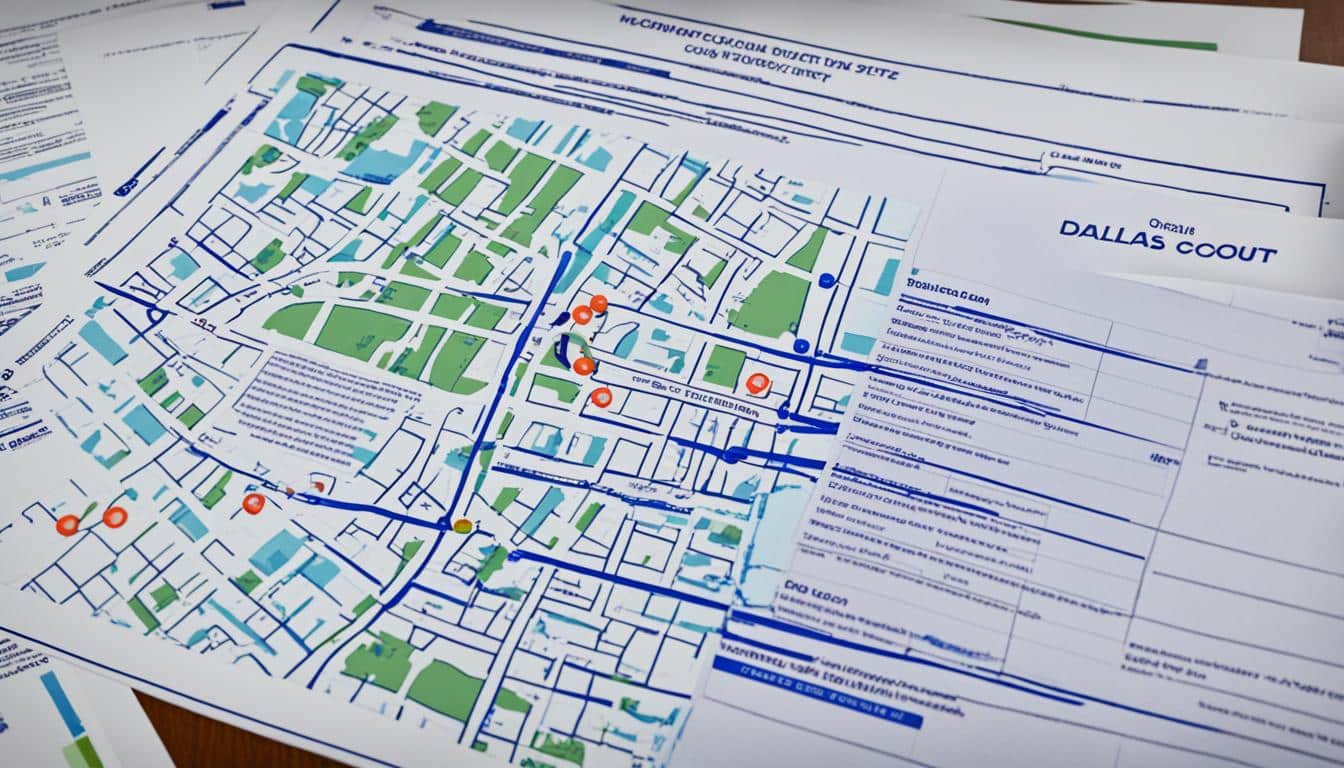Physical Address
304 North Cardinal St.
Dorchester Center, MA 02124
Physical Address
304 North Cardinal St.
Dorchester Center, MA 02124

Filing for divorce in Dallas County, TX, can feel like navigating through a complex maze. It’s not just about legal steps; it’s a major life event. You’re at a crucial juncture, where every decision leads to a new path. In Dallas County, the divorce process has its own set of unique challenges and requirements.
To move through this process effectively, understanding Dallas County’s specific divorce laws is key. This includes grasping residency requirements and getting to know the local court system’s intricacies. We’re here to guide you through this, offering clear, concise advice tailored to Dallas County. Consider this your roadmap, aimed at simplifying what might initially seem like an overwhelming journey.

Ready to learn more about the divorce process in Dallas County? Keep reading as we break down the essentials, making your path forward clearer and more manageable. Let’s take this journey together, moving towards new beginnings and brighter futures.
To get more info on filing for divorce in Texas, find a detailed overview in our article, How to File for Divorce in Texas.
To file for divorce in Dallas County, TX, it is important to understand the residency requirements. Meeting these requirements ensures that you are eligible to proceed with the divorce process. The residency requirements for divorce in Dallas County are as follows:
If you meet these residency requirements, you are eligible to file for divorce in Dallas County. It is essential to ensure that you fulfill these criteria before initiating the divorce process to avoid any complications or delays.
Next, we will explore the grounds for divorce in Dallas County, TX, which will provide you with a better understanding of the legal basis for ending your marriage.
In Texas, there are two main categories of grounds for divorce: no-fault divorce and fault-based divorce. Understanding the differences between these two types is important when considering filing for divorce in Dallas County, TX.
A no-fault divorce is based on the grounds that the marriage has become insupportable due to conflict or discord, making reconciliation impossible. This means that neither party is required to prove fault or wrongdoing on the part of the other spouse. In Texas, the most common reason cited for a no-fault divorce is “insupportability,” indicating an irreparable breakdown of the marriage.
In contrast, a fault-based divorce requires one party to prove that the other spouse is at fault for the breakdown of the marriage. There are several recognized fault-based grounds for divorce in Texas, including:
It’s important to note that fault-based divorces can be more complex and contentious, as they often involve presenting evidence and proving fault in court.
In Dallas County, TX, couples have the option to choose either a no-fault or fault-based divorce, depending on their specific circumstances and the grounds they wish to pursue.

| No-Fault Divorce | Fault-Based Divorce |
|---|---|
| No proof of fault or wrongdoing required | Requires proving fault on the part of one spouse |
| Grounds principally based on irreconcilable differences | Grounds based on specific acts or misconduct |
| Can be less contentious and more amicable | May involve disputes and evidence presentation in court |
Filing for divorce in Dallas County, TX involves several essential steps. By following these steps, you can navigate the filing process successfully and ensure that all necessary paperwork is completed.
Following these steps will help you complete the necessary requirements for filing for divorce in Dallas County, TX. It’s important to consult with an attorney or a legal professional to ensure that you understand the specific laws and procedures related to your divorce case.
When filing for divorce in Dallas County, TX, there are certain filing fees that must be paid. The exact amount may vary depending on the specific circumstances of your case and the county’s fee schedule. In general, the filing fees in Dallas County range from around $300 to $400. These fees cover the cost of processing and handling your divorce case.
| Description | Fee/Cost | Additional Information |
|---|---|---|
| Filing Fee for Petition for Divorce | Starts at $250-$300 | Additional costs for serving and copies. Payment accepted in cash, credit, money order, or cashier’s check. |
| Serving Spouse with Divorce Papers | Typically around $8 | – |
| Making Copies of Paperwork | Varies | Depends on the number of copies required. |
It is important to note that these fees are subject to change, so it is recommended to consult the Dallas County Court website or contact the court directly for the most up-to-date information. If you are facing financial hardship and cannot afford the filing fees, you may be eligible for a fee waiver. You can apply for a fee waiver by completing a Statement form and submitting it to the court. The judge will review your financial situation and determine whether to grant the fee waiver.
If you are unable to afford the filing fees for your divorce in Dallas County, TX, you may be eligible for a fee waiver. To apply for a fee waiver, you will need to complete a Statement form and submit it to the court. The judge will review your financial situation and determine whether to grant the fee waiver.
Applying for a fee waiver can provide financial relief for individuals who are unable to cover the costs associated with filing for divorce in Dallas County. By completing the required Statement form and demonstrating your financial need, you have the opportunity to have the filing fees waived.
The eligibility criteria for a fee waiver in Dallas County, TX may vary, but typically consider factors such as income, assets, and the number of dependents. It’s important to provide accurate and detailed information when submitting your application to increase your chances of being granted a fee waiver.
Having a fee waiver approved can help ease the financial burden of divorce and ensure that individuals with limited resources still have access to the legal process. If you are struggling to cover the filing fees, it is worth exploring the option of applying for a fee waiver in Dallas County, TX.
The court is located at:
600 Commerce St, Dallas, TX 75202, United States
If you are looking to file for divorce in Dallas County, TX but don’t want to hire an attorney, you have the option to pursue a DIY divorce. With a DIY divorce, you can represent yourself and navigate the process independently. This can be a viable option if you and your spouse are in agreement on all aspects of the divorce, such as property division, child custody, and support.
Filing for divorce without an attorney in Dallas County, TX can save you money on legal fees and give you more control over the process. However, it’s important to be well-informed and prepared. You’ll need to familiarize yourself with the divorce forms required by the county court and ensure that you fill them out correctly. It’s also crucial to understand the specific procedures and deadlines that need to be followed.
While a DIY divorce can be a practical choice for some, it’s essential to consider the complexity of your case and whether you feel confident in handling all aspects of the process. If you have concerns or questions, it may be wise to consult with a family law attorney who can provide guidance and ensure that your rights and interests are protected throughout the divorce proceedings.
To see how this process of filing for divorce in Dallas County compares to that in other TX counties, check out our articles about how to file for divorce in Comal County TX and filing for divorce in Denton County TX.